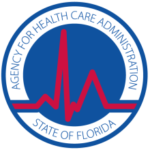
Agency for Health Care Administration (Agency) Secretary Mary Mayhew recognized Governor Ron DeSantis and President Donald Trump for their commitment to putting patients first. [Read more…] about AHCA Secretary Mayhew Applauds Gov. DeSantis & President Trump’s Unprecedented Efforts to Improve Health Care Pricing

